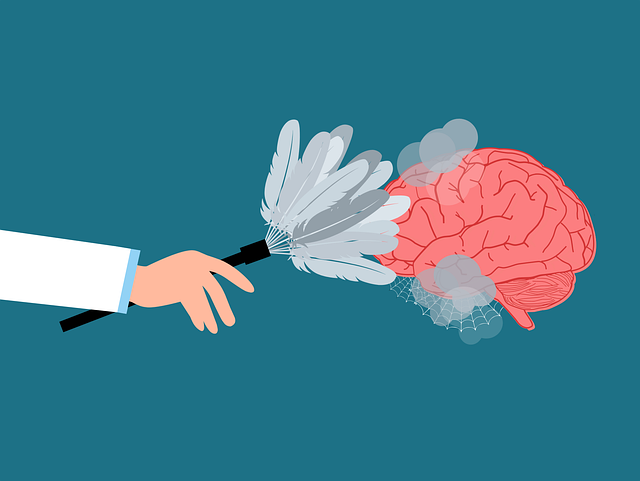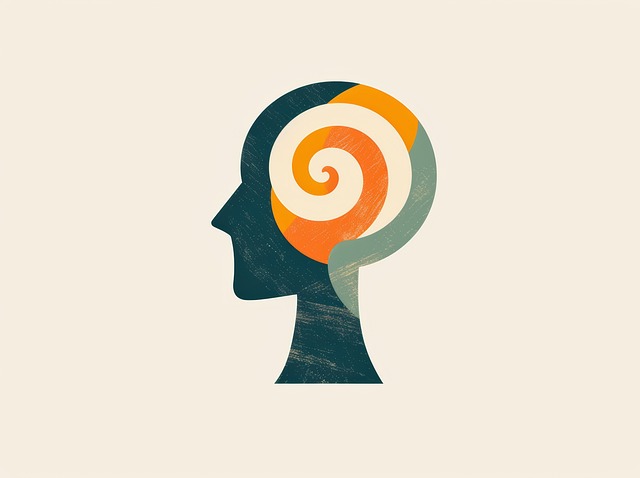In today's diverse society, addressing unique mental health needs of different genders is vital, especially for LGBTQ+ individuals seeking support. Traditional education often overlooks these challenges, exacerbating stigma and barriers to access. Broomfield Gender-Affirming Care Therapy (BGACT) offers a groundbreaking approach centered on inclusivity, mindfulness meditation, conflict resolution, and social skills training. An effective inclusive mental health program should integrate BGACT methods, consider diverse learners' needs, and prioritize burnout prevention strategies. Implementing evidence-based practices and regular evaluation ensure the success of such programs, fostering supportive communities for improved mental well-being.
Mental health education programs play a pivotal role in fostering well-being, especially with the growing awareness of gender-specific needs. This article explores the design of an innovative approach, the Broomfield Gender-Affirming Care Therapy (BGACT), to address these unique challenges. We delve into the importance of gender-affirming education, outline key principles, and provide a roadmap for creating inclusive curricula, integrating evidence-based practices, and evaluating program effectiveness. By implementing BGACT strategies, educators can enhance mental health support tailored to diverse learners.
- Understanding the Need for Gender-Affirming Mental Health Education
- Defining Broomfield Gender-Affirming Care Therapy (BGACT) Principles
- Designing an Inclusive Curriculum for Diverse Learners
- Implementing Evidence-Based Practices in BGACT Programs
- Evaluating and Iterating: Measuring Success and Continuous Improvement
Understanding the Need for Gender-Affirming Mental Health Education

In today’s diverse society, it is crucial to acknowledge and address the unique mental health needs of different genders. Traditional mental health education often overlooks the distinct challenges faced by individuals who identify outside of gender norms, such as those seeking Broomfield Gender-Affirming Care Therapy. This gap in understanding exacerbates stigma and barriers to access, ultimately hindering the well-being of a significant portion of the population.
Designing inclusive mental health programs that centre on gender-affirming care is essential. By integrating Mind Over Matter principles, which focus on cultivating resilience and emotional intelligence, these programs can empower individuals. Additionally, incorporating Conflict Resolution Techniques and Social Skills Training allows participants to develop effective communication strategies and build supportive networks. Such an approach not only enhances mental well-being but also fosters a more inclusive and understanding community.
Defining Broomfield Gender-Affirming Care Therapy (BGACT) Principles

Broomfield Gender-Affirming Care Therapy (BGACT) is a revolutionary approach to mental health care that prioritizes inclusivity and respect for all individuals, regardless of their gender identity or expression. The core principles of BGACT are grounded in fostering an environment of safety, acceptance, and empowerment. One of its key tenets involves promoting mindfulness meditation as a tool for Anxiety Relief, enabling individuals to develop self-awareness and coping strategies. This holistic therapy encourages open dialogue about diverse gender experiences, aiming to dismantle the Mental Illness Stigma Reduction Efforts that often plague LGBTQ+ communities. By fostering understanding and empathy, BGACT seeks to create supportive spaces where everyone feels seen, heard, and valued.
Designing an Inclusive Curriculum for Diverse Learners

In designing a mental health education program, creating an inclusive curriculum is paramount to cater to diverse learners. This involves considering various factors such as cultural backgrounds, learning styles, and individual experiences, ensuring that all participants feel valued and engaged. A well-rounded approach can be achieved by incorporating interactive activities, visual aids, and diverse case studies that reflect different identities and perspectives. For instance, integrating Broomfield Gender-Affirming Care Therapy methods can offer valuable insights into gender-specific mental health challenges, fostering an inclusive environment where learners from all backgrounds can openly discuss their experiences.
To enhance inclusivity further, the curriculum should prioritize burnout prevention and depression prevention strategies that resonate with diverse populations. By teaching mental wellness practices that are adaptable to individual needs, the program empowers learners to navigate stress and maintain resilience. This tailored approach ensures that no learner is left behind, promoting a supportive atmosphere where everyone can access and benefit from mental health education on their terms.
Implementing Evidence-Based Practices in BGACT Programs

Implementing evidence-based practices is a cornerstone of effective Broomfield Gender-Affirming Care Therapy (BGACT) program design. These practices, backed by rigorous research, have proven to be transformative in supporting individuals through complex mental health journeys. For instance, integrating coping skills development into therapy sessions equips clients with practical tools to navigate stress and challenging emotions. Moreover, focusing on emotional healing processes, as supported by risk management planning for mental health professionals, fosters a safe space for vulnerability and progress.
By adopting evidence-based approaches, BGACT programs can enhance their impact and outcomes. This involves regularly reviewing and incorporating the latest research into therapeutic techniques, ensuring that clients receive up-to-date and effective care. Such an approach not only benefits individual participants but also contributes to the broader field of mental health, driving continuous improvement in best practices.
Evaluating and Iterating: Measuring Success and Continuous Improvement

Evaluating the success of a mental health education program is an iterative process that allows for continuous improvement, ensuring the curriculum remains relevant and effective. This involves setting clear, measurable goals aligned with the program’s objectives. Metrics can include participant engagement, knowledge retention, and improvements in self-care practices. Using tools like pre- and post-program assessments, feedback forms, and follow-up interviews provides valuable insights into participants’ experiences.
For instance, a Broomfield Gender-Affirming Care Therapy program could measure success by tracking the number of individuals who complete the course and demonstrating improved stress management skills through self-reported surveys. Additionally, organizing Stress Management Workshops within the organization can facilitate peer support networks, enhancing mental wellness coaching programs’ development and longevity. Regular evaluation ensures that the program evolves to meet the changing needs of its participants.
Broomfield Gender-Affirming Care Therapy (BGACT) offers a transformative approach to mental health education, addressing the urgent need for inclusive and gender-sensitive care. By designing curricula that incorporate diverse perspectives and evidence-based practices, we can create supportive learning environments for all individuals. Implementing BGACT principles not only enhances access to quality mental health services but also fosters a culture of understanding and acceptance. Continuous evaluation and iteration are vital to ensure these programs remain effective and tailored to the evolving needs of diverse learners. Through collaborative efforts and a commitment to inclusivity, we can revolutionize mental health education and support the holistic well-being of every person.













